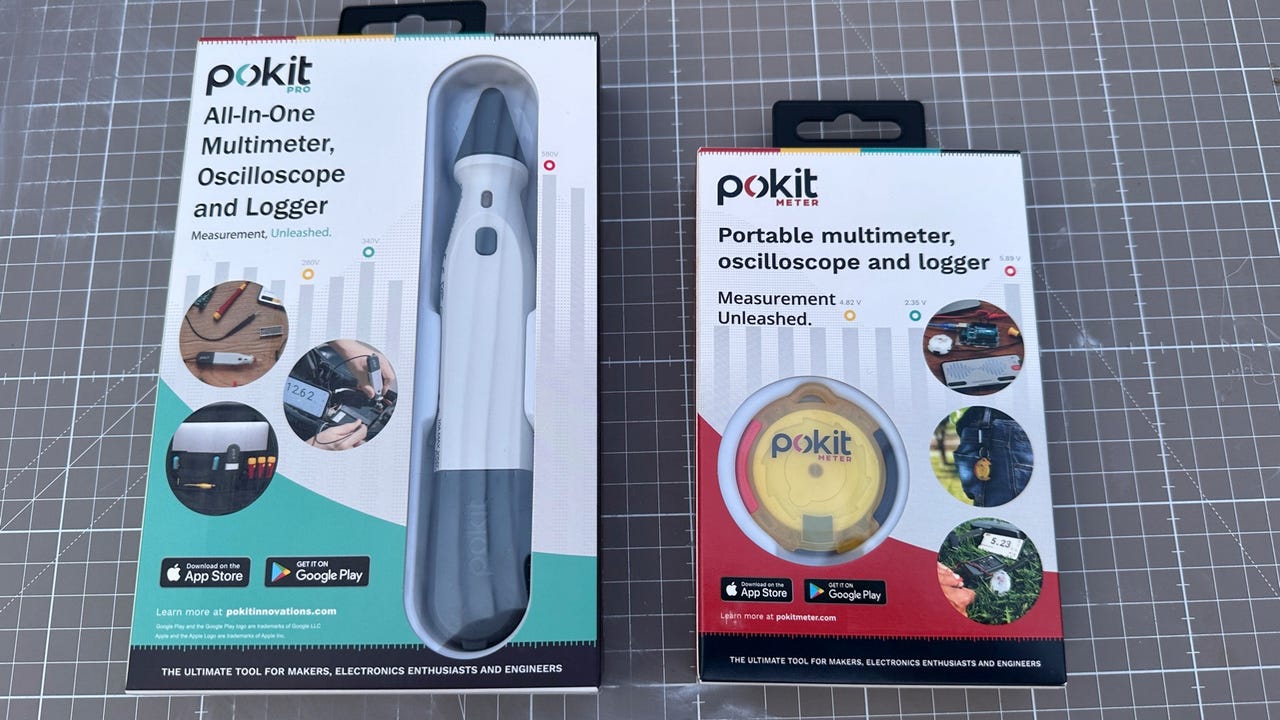































 Adrian Kingsley-Hughes/
Adrian Kingsley-Hughes/ A tool that I use a lot for day-to-day diagnostics and troubleshooting is the humble multimeter.A multimeter is an essential electrical measurement tool used by electricians, technicians, and hobbyists to troubleshoot and measure various electrical properties of electrical circuits and components. It combines the functions of multiple meters, including a voltmeter, ammeter, and ohmmeter, allowing the user to measure voltage, current, and resistance, respectively.
Some advanced multimeters can also measure other parameters, such as capacitance, frequency, and temperature.
Also: Here's why you should stop using cheap screwdrivers
Multimeters can be used for all sorts of applications, from diagnosing problems in electrical circuits, appliances, or electronic devices by detecting electrical faults or component failures, measuring the electrical properties of individual components, such as resistors, capacitors, and diodes, and also checking electrical safety of equipment.
My go-to unit for the past few years has been the super reliable, super usefulKaiweets HT206D . Priced at under$40, this thing has paid for itself many times over.
But it's had a hard life and has suffered a bit of damage. Plus it's missing a few features that I think would be beneficial from a multimeter.
Also: This tiny keychain is a mighty tool for your personal safety
For example, the Kaiweets can't log data, so the information you get is limited to what is displayed on the screen. It's also wired, so you need to be in front of the display the whole time, and there's no option to have the information beamed to your smartphone over Bluetooth. And finally, there's no oscilloscope feature that allows you to capture data such as voltages per second and display that as a waveform, which is an extremely useful troubleshooting feature.
So, I went in search of a smart multimeter, and I ended up getting two for testing: thePokit Pro , and its smaller sibling, thePokitMeter .
Both of these devices are "smart" in that they combine the features of a multimeter, an oscilloscope, and a data logger into a single device, and also connect to an app on your smartphone, doing away with the need for a screen on the meters.
The lead to the second probe is an ideal length.
Adrian Kingsley-Hughes/The Pokit Pro is a neat, compact probe-style multimeter. The lead to the second probe is a generous 700 mm/27.5 inches, which is long enough to be useful and short enough to not get in the way. It wraps neatly around the multimeter when not in use.
Also: This is the perfect mini electric screwdriver
 Tags quentes :
Nosso processo
Home & Escritório
Tags quentes :
Nosso processo
Home & Escritório